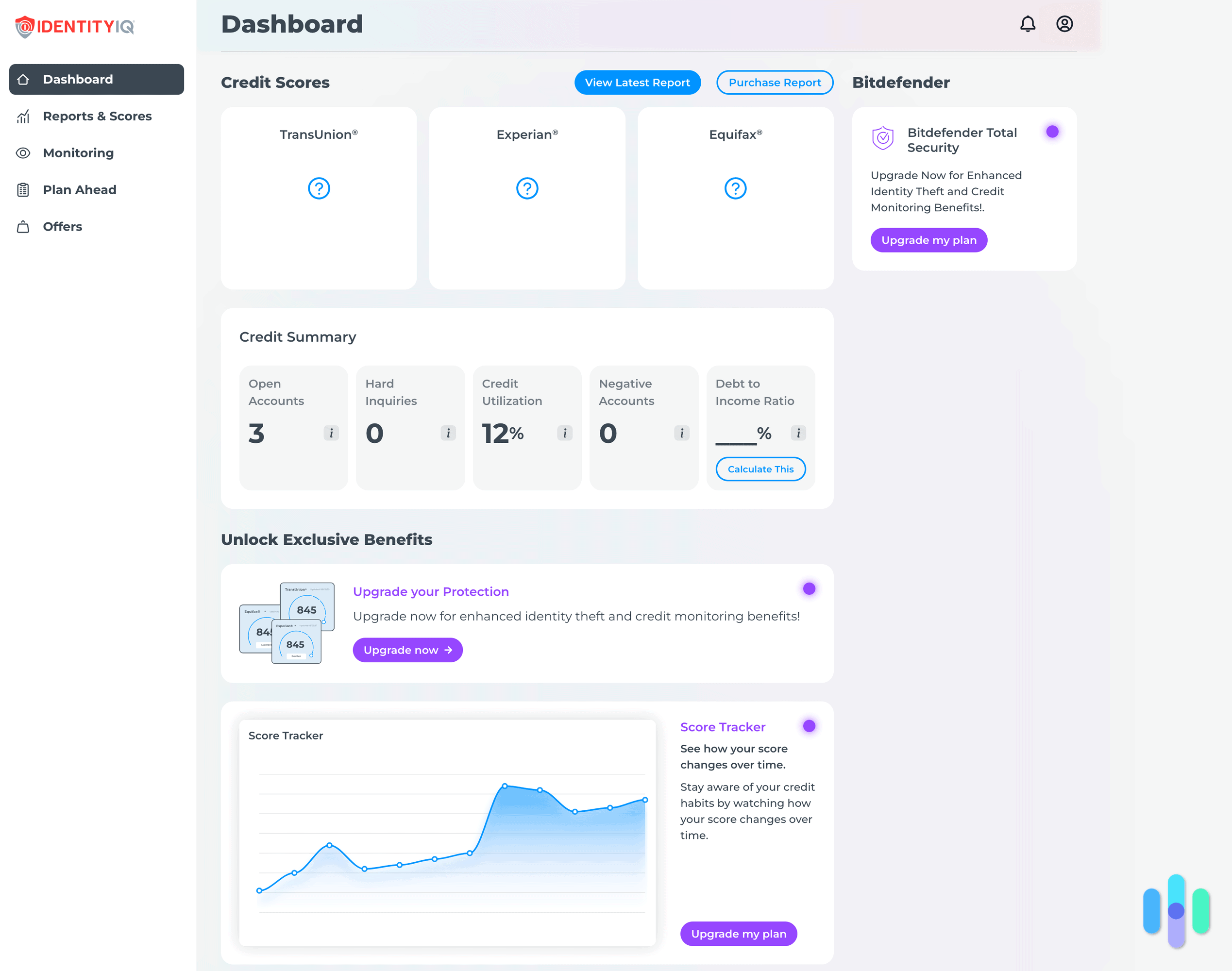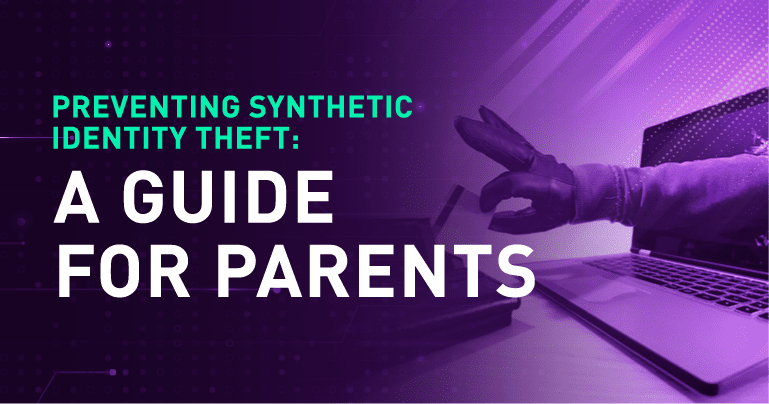Insurance is something we hope we never need but it’s there to save us during our most stressful times. After analyzing data from identity theft victims, we learned that identity theft affected 15 million Americans in 2023 alone. Victims spent an average of 100 to 200 hours trying to recover their identities. Identity theft insurance can help alleviate those issues by providing the funds needed to restore your identity.
>> Read More: A 2025 Guide to Identity Theft Protection
But, is the price worth it or is buying identity theft insurance more like buying car insurance from the used car place that changes the name of their dealership every other year? We researched to find out and came up with mixed results. Whether or not it’s worth it depends on your circumstances and the company you choose as your insurer. Let’s dig in.
Key Findings
- Identity theft insurance does not normally cover stolen funds or personal expenses. It covers costs associated with recovering your identity.
- The price of identity theft insurance starts at under ten dollars per month.
- Most identity theft insurance providers help you recover your identity with professional support as well.
- Signing up for identity theft insurance can put your data at risk if they have poor data security practices.
What is Identity Theft Insurance?
At first, you probably thought identity theft insurance would cover the money you lose due to identity theft. But, that’s not usually the case. Identity theft insurance tends to cover the costs you incur while recovering from identity theft. It does not cover funds that identity thieves steal directly from you.
Pro Tip: Getting your identity back after it gets stolen can get confusing. We give you a clear path forward in our guide on what to do if your identity is stolen. Our step-by-step guide takes you from filing an identity theft report to upgrading your security measures so your identity doesn’t get stolen again.
To stand out in the competition, some providers connect you with an identity theft specialist as well. They provide 24/7 support and handle a lot of the recovery process on your behalf. This includes contacting credit bureaus, filing police reports, and disputing fraudulent charges. This is one of the reasons when we tested Aura, it ended up on our list of the best identity theft protection services.
During our testing, we received 31 alerts within the first week of using Aura’s comprehensive monitoring service.
What Does Identity Theft Insurance Cover?
Since identity theft insurance doesn’t tend to cover your losses caused by identity theft, what exactly does it cover? Coverage varies by provider, but most policies reimburse expenses ranging from $25,000 to $3 million. But, the most common expenses that identity theft insurance covers include:
- Case manager fees
- Legal fees
- Document replacement fees
- Loss of income reimbursement
- Financial activity fees
- Child care for court hearings and necessary appointments
Our favorite identity theft restoration services offer coverage beyond these industry standards with stolen funds reimbursement and personal expense compensation. They also add proactive measures like monitoring your credit reports from one or all three bureaus, financial fraud alerts, and device protections like antivirus software. We find these features are worth the premium as we’ve received over 25 fraud alerts during our time testing identity protection services.
Did You Know: If stolen funds reimbursement is a higher priority to you than identity theft insurance, IdentityIQ offers $1 million in stolen funds reimbursement on all plans but they cap out at $25,000 for identity theft insurance. Check out our review of IdentityIQ for a complete breakdown of this unique identity protection service.

How Much Does Identity Theft Insurance Cost?
Identity theft insurance is nowhere near the price of insurance we’re used to paying like car insurance or health insurance. Identity theft insurance starts at about $8 per month for individual coverage and $15 per month if you’re looking for one of the best family identity theft protection services.
>> Learn About: Identity Theft Prevention: Tips and Techniques for 2025
To give you a better idea of the price of identity theft insurance, we compared our four favorite providers:
| Identity theft insurance | Coverage | Price per month when billed annually |
|---|---|---|
| Aura | $1 million per adult | $12 to $32 |
| LifeLock | Up to $3 million per adult | $7.50 to $38.99 |
| Identity Guard | $1 million per adult | $6.67 to $23.99 |
| IdentityForce | Up to $2 million | $16.66 to $33.33 |
Pros and Cons of Identity Theft Insurance
The pros and cons of identity theft insurance are amplified by the quality of the provider. So, even though all of them have these pros and cons, the high-quality ones take measures to reduce the impact of the cons while making the pros more significant. Let’s go over both starting with the pros.
Pros of Identity Theft Insurance
Here’s what you can expect to get from a quality identity theft insurance provider:
- Professional support recovering your identity — To help you recover in the most efficient way, many providers offer one-on-one guidance from an identity recovery specialist.
- Coverage for costs incurred during recovery — Given that the majority of Americans would not be able to cover a $1,000 emergency expense, the fees you’ll incur recovering your identity can get a lot higher than that.1 And these are fees you can’t get around paying or you can risk further damage to your identity. Insurance resolves this issue.
- Proactive identity protection — Insurance companies don’t want to pay out so identity insurance providers typically offer proactive protection as well. Keeping you safe helps them too.
>> Read More: How To Protect Yourself From Identity Theft
- Credit monitoring and reports — The most common type of identity theft involves the thief trying to open up a new credit card account. This shows up on credit reports, so if you have monitoring, the activity should get flagged before the thief can take out significant loans.
Cons of Identity Theft Insurance
There are a few drawbacks to identity theft insurance. As long as you pick one with a good reputation though, these cons are minimal.
- Data risks — Signing up for identity theft insurance means providing your personal information to the provider. If they experience a data breach, that could mean your data getting leaked.
FYI: Like identity theft, you can’t reduce the risk of your data being involved in a data breach to zero either. There’s always going to be a risk. You can reduce your risk though. We cover how in our guide to securing confidential personal data both online and offline.
- Overlapping coverage or features — You might already have identity coverage through a credit card or other insurance provider. Many major credit cards include basic identity theft protection. We’ve even seen some homeowners or renters insurance policies offer identity theft coverage riders. A lot of identity theft insurance providers also bundle their services with credit monitoring, antivirus software, and VPNs. If you’re like us, you don’t like paying two companies for the same service.
- Protection is not 100 percent effective — No matter what you do to reduce your risk of becoming an identity theft victim, the risk never goes away completely.
Final Thoughts: Is Identity Theft Insurance Right for You?
Is identity theft insurance worth it? With synthetic identity fraud growing year-over-year and the average victim spending a minimum of $1,000 out-of-pocket to recover their identity, we think identity theft insurance is worth every cent. If you already have identity protection through your credit card or other insurance company, you might not need it. Especially if you keep your identity theft risks low by keeping your important documents and devices secure.
We tend to recommend identity theft insurance though. With prices starting at less than $8 per month for the best providers on the market, it’s hard to pass up the protection. Check out our guide on comparing identity protection services to figure out which one is right for you.
FAQs About Medical Identity Theft
-
What is medical identity theft?
Medical identity theft refers to the act of fraudulently using someone else’s health insurance or other medical benefits for treatments.
-
Can you prevent medical identity theft?
You can reduce your risk of becoming a medical identity theft victim by keeping your medical information secure. This includes shredding old insurance cards, reviewing your Explanation of Benefits statements carefully, and never sharing your insurance information on unsolicited phone calls. This reduces your exposure making you a harder person for an identity thief to victimize. That said, there’s no guaranteed way to prevent all medical identity theft attempts.
-
Should I report medical identity theft?
Yes, always report identity theft no matter what type it is. This way, the government can help you get your identity back. These reports also help organizations better understand identity theft and how to minimize risks.
-
How does someone get my health insurance information?
There are many ways a medical identity thief can steal your health insurance information. A few of the most common include medical documents that were improperly disposed of, someone snooping over your shoulder to look at your paperwork, and data leaks.
-
What are the consequences of medical identity theft?
Someone using your insurance fraudulently can impact your coverage which can leave you unable to receive recommended treatments. It can also cause inconsistencies with your medical records. These inconsistencies can be life-threatening. Incorrect blood types, allergies, or medical conditions on your record could lead to improper treatment in emergency situations.




